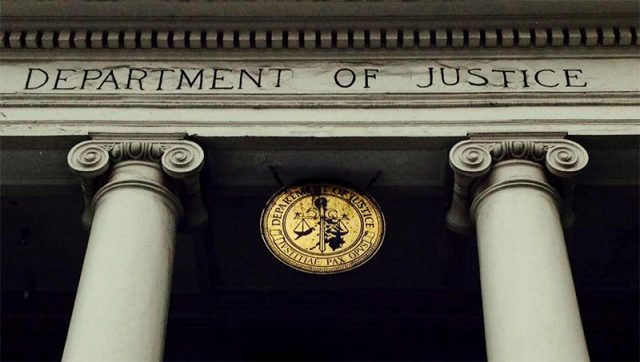The Need for Foreign Lobbying Reform
July 29, 2016By Peter Sahagian
Lobbying has existed in American politics since the beginning of Congress. It is a legal right of any group or individual to hire experts and lawyers to reach out to our democratically elected representatives and convince them to adopt policies and stances that benefit them.
Foreign countries have a special place in the lobbying world, with reporting rules and regulations set since the 1930’s, when Nazi Germany attempted to quietly manipulate elected officials and American public opinion. As a result, in 1938 the Roosevelt Administration pushed through the Foreign Agents Registration Act (FARA) which aimed to shed light on foreign lobbying efforts by requiring, as the name implies, countries and outside firms to register with the Department of Justice and report their activities on consistent basis. All “foreign agents” must submit to FARA their contracts with their employers, a report on their activities and payments every six months, and copies of the forms and documents they disseminate. All this information is made accessible to the public on fara.gov.
On paper, that sounds great, but as soon as you begin researching the information—I mean really researching who the players are, who they are trying, and how successful they are—you begin to see the shortcomings of the system.
Take the case of Turkey and Azerbaijan’s lobbying efforts. In 2016, Turkey and Azerbaijan are expected to spend around $2.3 million and $1.3 million, respectively. Both states have consistently lobbied Congress to whitewash their public images—denying the Armenian Genocide and misrepresenting the situation in Nagorno-Karabagh. Irrespective of their position, as foreign lobbyists, we should be able to track their activities. However, the information about their lobbying activities tends to be disorganized, meager, and even withheld despite the legal obligation to provide data.
Take, for example, the Tool Shed Group, a lobbying group working on behalf of Azerbaijan, which filed three years of reports—five reports from 2013-16—on the same day, June 21, 2016. The meetings it has arranged, the phone calls and e-mails it has made, and the payments it has received—none of them made accessible in a timely manner.
Or the Mercer Group, working for the government of Turkey back in 2010, which not only filed two years late, but presented the data in such a convoluted way, that figuring out who they targeted and the topic addressed required the cross-referencing of pages of data.
Many larger firms, like Gephardt and Associates (representing Turkey) and Greenberg Traurig (representing Turkey and Azerbaijan), may file on time but, like Mercer, following their pages and pages of data is difficult for citizens and organizations to navigate.
All of this is a “clever” attempt to conceal their lobbying efforts in order to avoid any form of criticism or backlash—ultimately stifling discussion about issues like Nagorno-Karabagh and the Armenian Genocide, leaving Congress to make decisions based on biased information.
The Department of Justice and the federal government can address these issues through technology and greater enforcement of the existing laws.
First, on the technology side, FARA must standardize the filing process to make it easy for the public to follow foreign agent activity. Like a simple standardized structure—a table or spreadsheet with clear subject headings—and consistent format that the FARA Department can upload and make available for public review. Today, non-profit organizations like the Sunlight Foundation and their excellent Foreign Influencer tool, try to keep up, but are, even with their best efforts, two years behind.
The Armenian National Committee of America (ANCA) has taken on the task of standardizing the data, but it takes countless hours for volunteers and interns to parse through just the Turkey and Azerbaijan filings. Imagine keeping up with every country and every foreign lobbying firm.
Then, with the clear data in hand, comes enforcement of the rules.
There are clear penalties—fines and even jail time—for failure to register foreign as a foreign lobbyist or for lying on registration forms, although the most recent case brought against a client, according to the Department of Justice website, is back in 2010, so it is unclear how often or consistently the law is applied. When it comes to willful delays of filings (a log of activities must be filed every six months), the penalties appear almost non-existent. What is the incentive to comply if there is no credible enforcement mechanism other than public shaming? (See the excellent article by Casey Michel regarding the chronic misrepresentation by pro-Azerbaijan lobbyists and groups, titled “Azerbaijan’s American Media Manipulation” (https://medium.com/news-politics/azerbaijans-american-media-manipulation-a59e0870bdb1#.ta1qt3yw8). The laws should be clear and enforcement consistent.
The bottom line is we need transparency between the government and citizens. The current state of foreign agents’ lobbying activities reflects a breakdown in that process as we know it. And, with some modern technology and careful enforcement, it can be corrected. As it stands right now, foreign agents are calling, writing, and meeting with our elected officials, and if we can’t track that information on a timely basis, the ability for American constituents to respond is undermined. That is the whole reason the FARA laws were put into place. Now’s the time to make sure they actually work.
Peter Sahagian, an ANCA Leo Sarkisian Intern this summer, is a student at Tufts University, Class of 2017.
Source: Armenian Weekly
Link: The Need for Foreign Lobbying Reform
